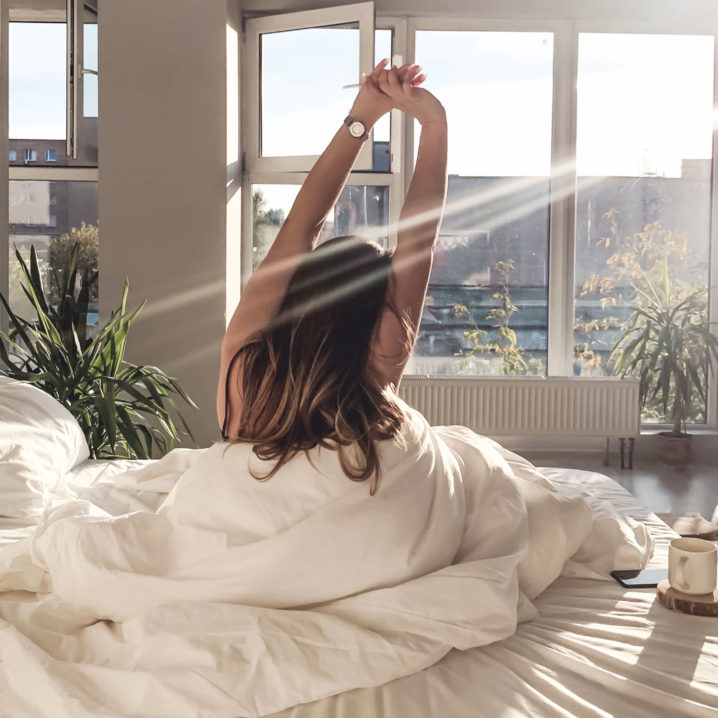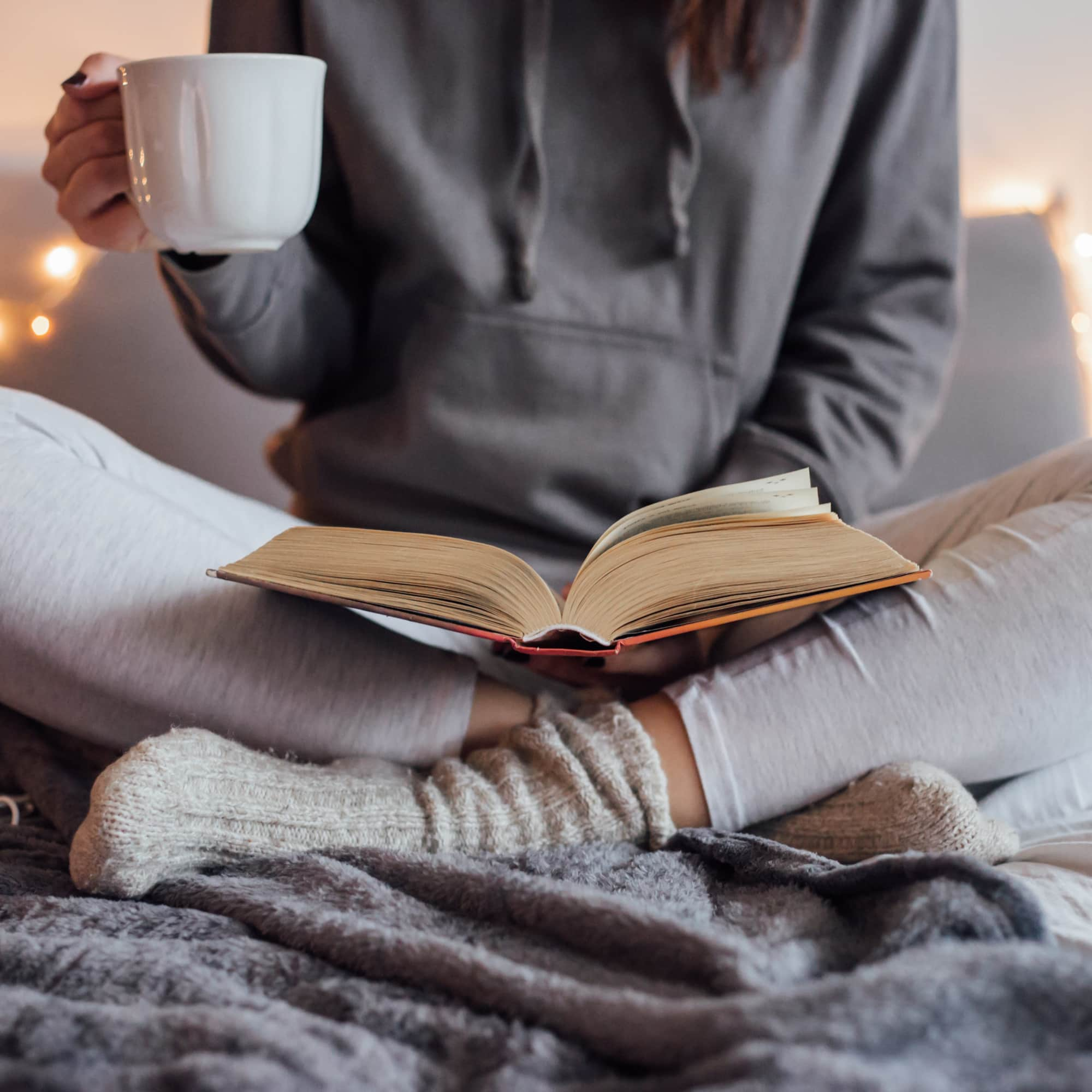
- POPSUGAR Australia
- Living
- 3 Ways Your Technology Can Actually Help, Not Hinder, Your Sleep
3 Ways Your Technology Can Actually Help, Not Hinder, Your Sleep

We’ve long been told the ways technology can negatively impact our sleep, and while it’s true blue light will affect your body’s natural production of melatonin, and a confronting alarm will almost certainly have you waking up on the wrong side of the bed, there are a number of ways we can better use our technology to ensure a better night’s sleep.
From sleep-tracking apps to ambient music, if you know how, you can actually use your devices and apps to both lull you into a deep sleep, and keep you dreaming sweet dreams right until morning.
On World Sleep Day, here is our advice for nodding off with the help of your tech.
Track your slumber
We’re not talking about a sleep journal, though if you do happen to experience curious dreams and even nightmares, then these can be helpful for making sense of your subconscious sleep thoughts. No, we’re talking about scientifically-backed sleep trackers, which help you gain a better understanding of your body’s physiological responses during, before and after sleep.
The new Sleep app on the Apple Watch will not only track your sleep (noting the time you spent lying in bed vs. the time you actually spent sleeping), but will also help you create a sleep schedule — and stick to it. You set the number of hours you’d like to be sleeping before Wind Down mode kicks into gear, curating a range of sleep-inducing apps like Headspace and Podcasts, and shutting off your notifications to ensure you’re not disturbed by “You up?” messages. You can view all your data in the Health app to find out how better you can improve your patterns.
In addition, there are a number of sleep tracking apps that do a great job of improving your quality of sleep. Sleep Cycle, for example, will analyse your sleep patterns and detect snoring, sleep talking, coughing and other sounds. An intelligent alarm clock will wake you up gently, while the app provides sleep reports so you can better understand where you need to improve.
Pop in a podcast
Racing minds are not sleep-ready minds, and if you find yourself re-living moments from the day, thinking about that big meeting tomorrow, or brainstorming what you’ll have for breakfast the next morning, chances are you may need a little bit of help with slowing down those thoughts.
Podcasts are a great way to distract the mind from stressful thoughts, and while some find listening to news-related podcasts or interviews with chefs calming, there are a whole host of podcasts out there dedicated entirely to sleep.
On World Sleep Day, Apple is launching a new collection of sleep stories and guided sleep pods to lull you into sleep dreams. In the collection, you’ll find sure-fire snoozefests like Nothing much happens; bedtime stories to help you sleep and Get Sleepy: Sleep meditations and stories.
Play ambient noise
You may be ready to sleep, but your neighbour is still blasting the NRL or building IKEA furniture with a hammer (at least it sounds that way). Our advice? Drown out peripheral noises with a calming orchestra of ambient sounds. Whether it’s rain, logs crackling in a fire, the sounds of a raging storm or whales (hey, whatever works!), use a high-quality home speaker like the HomePod Mini to get yourself in the zone around 30 minutes before bed. And if you like falling asleep to these noises, just ask your smart speaker to set a sleep timer, so the sounds automatically stop after a certain time.


